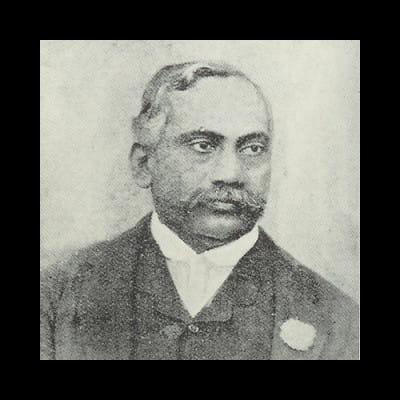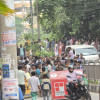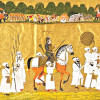Happy Birthday, Monomohun Ghose

He was the son of Ramlochan Ghose, a renowned sub-judge of his times. Monomohun spent his early days with his father in Krishnanagar, West Bengal and was a student of Krishnanagar College. Monomouhan was a sharp, informed youth; and during the indigo movement which took place in the mid 19th Century, Manomohun wrote a strong article opposing the indigo merchants, however that remain unpublished. Later in 1861, when he joined Presidency College, he along with his friend Keshab Shunder Sen started the Indian Mirror.
Monomohun, along with Satyendranath Tagore, became the first two Indians to sail to England to prepare for and appear in the Indian Civil Service examinations. He went through a lot of struggle, including learning new subjects, racial discrimination and alteration of syllabus, and all his efforts went in vain as he failed twice. But, back then he had no clue that what his fate had in store for him.
Monomohun Ghose was called to the bar from Lincoln's Inn. After his call, Ghose returned to India in 1866 and started practising as a barrister in Calcutta High Court in 1867. He was the first Indian barrister to practice in Calcutta High Court. Although Gnanendramohan Tagore was the first Indian to have been called to the bar in England in 1862, he never practised in Calcutta High Court and as such Ghose is considered the first practising Indian barrister.
His talents were immediately recognised and within a short period of time he made his mark as a criminal lawyer. In numerous cases he exposed the character of the British ruling elite and protected the subjects who were not guilty.
Ghose was often subjected to mockery as he took on all the characteristics of an Anglicised Indian. Despite being close to the Tagore Family, who were leaders in upholding Indian culture and heritage while keeping their doors open to the world, he was inclined towards westernization.
Ghose will long be remembered for his contributions towards the improvement of his countrymen, particularly in the field of women's education, apart from donating the building of Krishnagar Collegiate School; Ghose had played a very important role in setting up a teacher's training school in India during 1869 by Unitarian and social reformer Mary Carpenter. Ghose was very closely associated with Banga Maha Vidyalaya, the first liberal arts college for women which was established in India in 1872 by Annette Akroyd. He also played a leading role in the merging of Banga Mahila Vidyalaya with Bethune School, which later developed into a centre for higher studies where women could learn up to the postgraduate level.
Barrister Monmouhan Ghose died in October 16, 1896 in Krishnanagar, West Bengal.

 For all latest news, follow The Daily Star's Google News channel.
For all latest news, follow The Daily Star's Google News channel. 








Comments